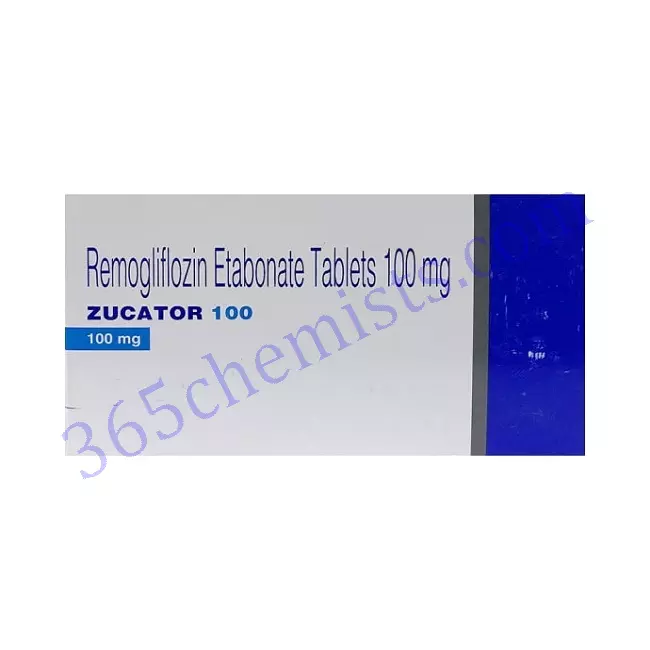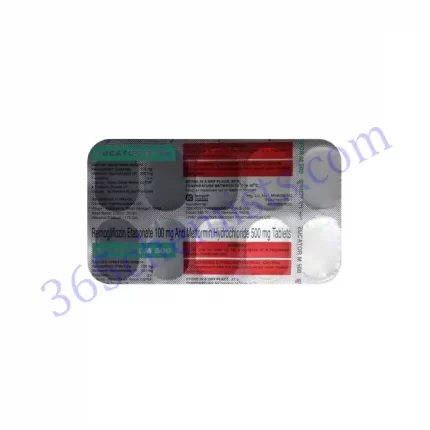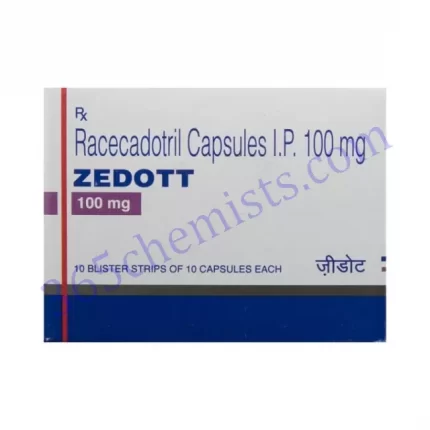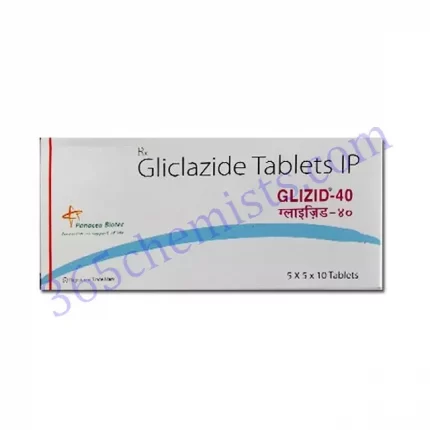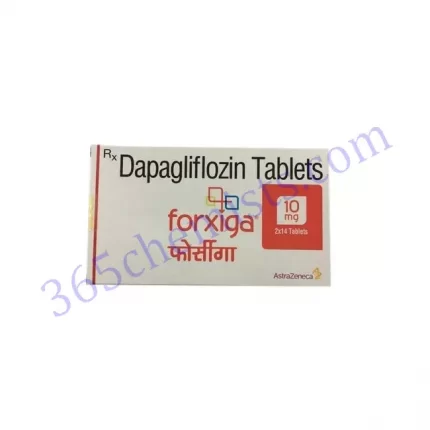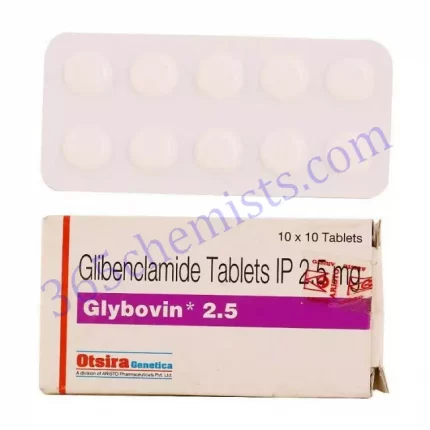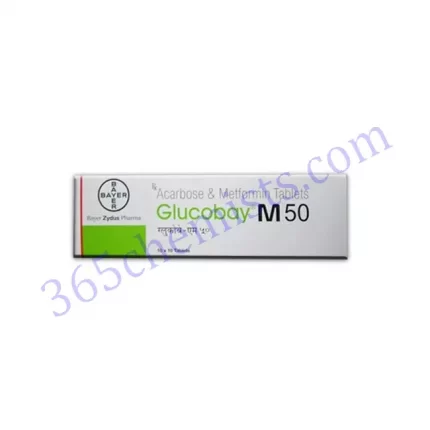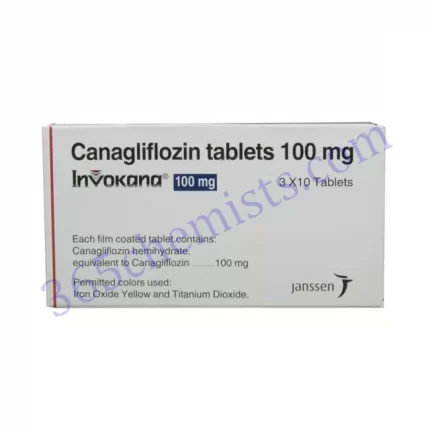Zucator 100 Tablet (Remogliflozin Etabonate 100mg): A Comprehensive Overview
A drug known as Zucator 100 Tablet uses Remogliflozin Etabonate 100mg as its active ingredient. This component may be found in one tablet. Its most common use is in the treatment of diabetes type 2, often known as type 2 diabetes mellitus. This detailed summary offers a wealth of information pertaining to Zucator 100 Tablet, such as its advantages, recommended dosage, potential adverse effects, and preventative measures.
Understanding Remogliflozin Etabonate
Remogliflozin Etabonate is a sodium-glucose co-transporter 2 (SGLT2) inhibitor. It accomplishes this by blocking a protein in the kidneys called SGLT2, which, in turn, leads to a reduction in the reabsorption of glucose and an increase in its excretion through urine. Remogliflozin Etabonate helps persons with type 2 diabetes lower their blood sugar levels by increasing the amount of glucose that is excreted through their urine.
Benefits of Zucator 100 Tablet
Glycemic Control The Zucator 100 Tablet is an efficient means of bringing about glycemic control and bringing about a reduction in blood sugar levels. It does this by inhibiting the kidneys’ ability to reabsorb glucose, which in turn facilitates the removal of excess glucose from the body and a subsequent reduction in blood sugar levels.
The weight control drug remogliflozin etabonate has demonstrated beneficial results, particularly in this area. It does this by encouraging the excretion of glucose through urine, which can result in either a slight weight reduction or a maintenance of one’s current weight. People who struggle to maintain a healthy weight and who have type 2 diabetes may benefit from this to a greater extent than others.
Diabetes is connected with an elevated risk of cardiovascular complications. Cardiovascular protection Diabetes is related with an increased risk of cardiovascular complications. The cardiovascular benefits of remogliflozin etabonate have been established by a reduction in the risk of heart failure as well as improvements in cardiovascular outcomes. The Zucator 100 Tablet helps to minimise the risk of cardiovascular disease by lowering blood sugar levels, blood pressure, and body weight. This contributes to the total protection that the tablet offers for the cardiovascular system.
Dosage and Administration
The Zucator 100 Tablet must be taken precisely as directed by your doctor or other qualified healthcare expert. The typical daily dosage, which can be taken with or without food, is one 100-milligram tablet. It is essential to take the medication exactly as directed and not to alter the dosage in any way prior to speaking with a qualified medical practitioner.
Related Product
Zucator 100 Tablet
Zucator M 500 Tablet
Zucator M 1000 Tablet
Possible Side Effects
Even though Zucator 100 Tablet is well accepted by most people, it is possible that it could have some adverse effects. Among the most frequently reported adverse effects are:
- Infections of the Urinary Tract The likelihood of urinary tract infections occurring in some persons may be higher. Symptoms may include pain or burning during urination, frequent urination, urine that is murky or bloody, and discomfort in the lower abdomen. Frequent urination may also be a symptom. When any of the signs of a urinary tract infection present themselves, it is critical to get medical help as soon as possible.
- Infections of the Genital Tract Zucator 100 Tablet may, in extremely rare instances, increase the risk of infections of the genital tract, such as yeast infections in women and balanitis in males. The patient may have symptoms such as itching, redness, swelling, and an odd discharge. It is critical to seek the advice of a qualified medical practitioner as soon as possible if you notice any symptoms that could point to a genital infection.
- Increased Urination and Thirst: The active ingredient in Zucator 100 Tablet is remogliflozin etabonate, which causes an increase in the amount of glucose that is excreted through urine. This could lead to increased urination, which in turn would cause an increase in thirst. It is essential to drink an appropriate amount of water and keep your fluid consumption in check.
- Dehydration can occur as a result of excessive urination brought on by the Zucator 100 Tablet, particularly if adequate fluid intake is not maintained. Dehydration can cause a number of symptoms, including an increase in thirst, dry mouth, weariness, dizziness, and a decrease in urine output. It is of the utmost importance to ensure adequate fluid intake and to seek medical assistance if symptoms of dehydration continue.
These negative reactions to medication are typically minor and short-lived, and they tend to go away on their own as the body gets used to the treatment. Nevertheless, it is imperative to consult a medical professional in the event that any adverse effects are severe or linger for an extended period of time, or if there are doubts regarding the effects of the medicine.
Precautions and Considerations
Individuals with specific medical conditions, such as kidney impairment or a previous history of urinary tract infections, should use Zucator 100 Tablet with extreme caution in order to avoid adverse effects. Before beginning therapy with Zucator 100 Tablet, it is essential to communicate with your healthcare practitioner about any preexisting medical issues as well as any medications you are now taking. In order to guarantee proper and safe utilisation of pharmaceuticals, it is imperative to declare any known sensitivities or allergies to those prescriptions.
Drug Interactions
It is possible for Zucator 100 Tablet to interact with other medications, including those that also treat diabetes and those that are known to influence renal function. It is imperative that the patient tell their healthcare professional about any and all medications, including vitamins, herbal supplements, and over-the-counter treatments, that they are currently taking at the same time. Because of this, potential drug interactions may be identified and managed, which will ensure that Zucator 100 Tablet is used in a manner that is both safe and effective.
Monitoring and Follow-up
While using Zucator 100 Tablet, it is imperative that you undergo routine monitoring in order to evaluate its efficacy and identify any potential adverse effects. It’s possible that your doctor will suggest doing blood tests on a regular basis so they can monitor your kidney function, blood sugar levels, and other indicators. In addition, regular checkups and consultations will make it possible to make alterations in the treatment plan if they are deemed appropriate. These appointments will also provide an opportunity to address any concerns or problems that may come up over the course of therapy.
Conclusion
Patients who suffer from type 2 diabetes mellitus can benefit from taking Zucator 100 Tablet, which is a drug that contains Remogliflozin Etabonate 100mg. It accomplishes this by preventing the kidneys from reabsorbing glucose, which results in decreased levels of blood sugar and improved glycemic control. The Zucator 100 Tablet provides an efficient method for the management of diabetes, thanks to the potential benefits it offers in weight management and protection against cardiovascular disease. It is essential to guarantee the safe and effective administration of a medication by strictly adhering to the dose instructions provided, keeping oneself informed about any potential adverse effects, and maintaining open and honest communication with one’s healthcare providers. Individuals are able to effectively control their diabetes and lower their risk of the problems that are connected with the disease when they take the appropriate strategy.

